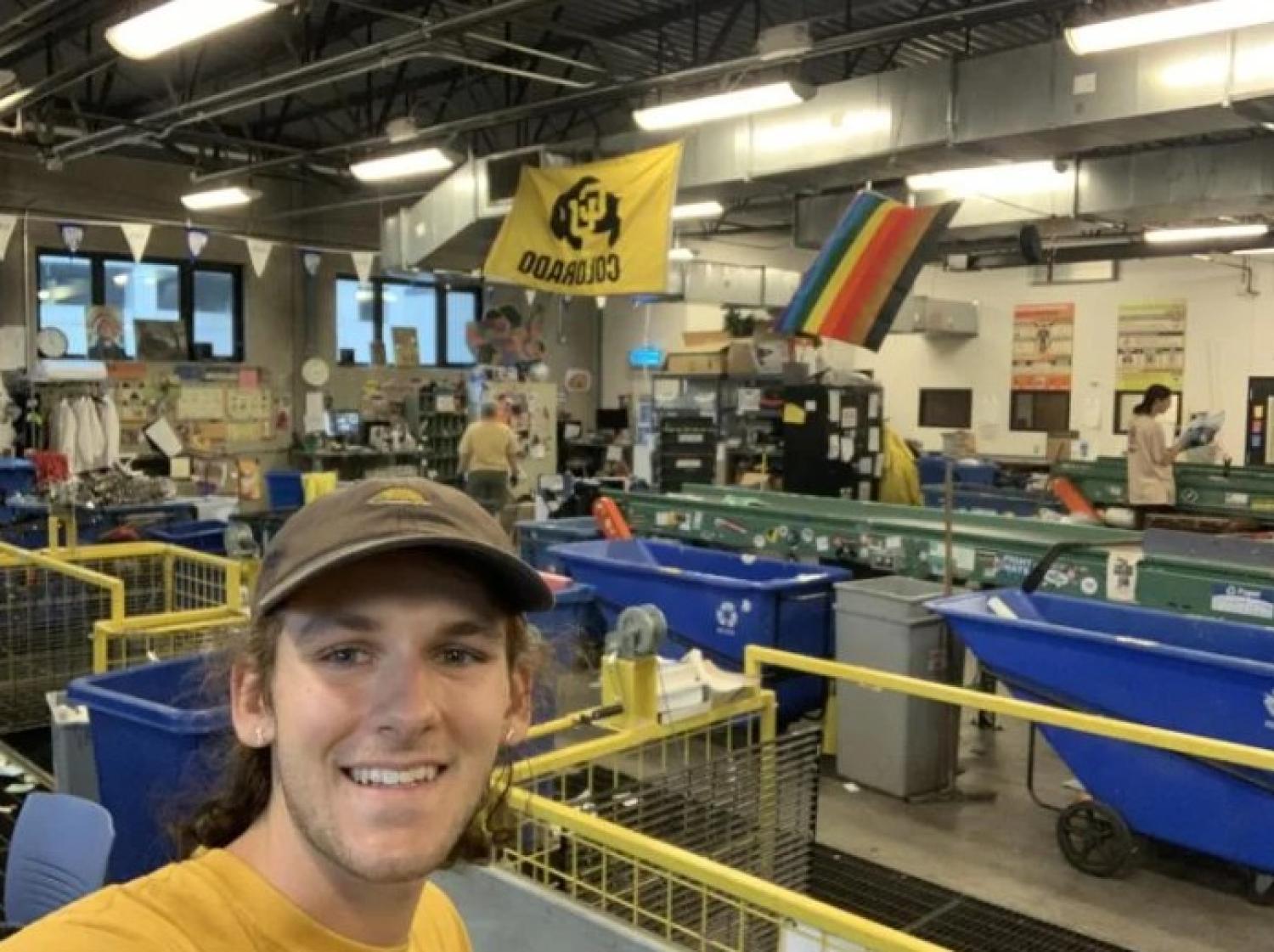Q&A with Environmental Center's recycling operations center lead

John LaBar (he/him/his), originally from Cincinnati, Ohio, is a dedicated student at CU Boulder. He’s currently majoring in EBIO (ecology and evolutionary biology) and minoring in philosophy. Over the past year and a half, John has been actively involved with the CU Boulder Environmental Center, where he serves as the recycling operations center (ROC) lead. Beyond his academic and environmental interests, John enjoys music and hiking. However, his true passion lies in ecology - he’s fascinated by the study of nature, biology and ecosystems. With a strong commitment to sustainability and waste reduction, John is dedicated to making a meaningful impact, both on campus and within his community.
What are some of the key tasks or projects John has been involved in as a student staff member at the Environmental Center?
As a student staff member at the Environmental Center, John’s main focus is at the GROC (Grounds & Recycling Operations Center), but he also takes on additional responsibilities. He explains, “I also work events and am a certified driver on campus for Zero Waste.” However, one of his favorite tasks is training and getting to know new team members.
What is a typical day like for John?
A typical day for John starts early, but he admits, “I wake up early, but rot in bed until I have to rush to bike to class.” During the afternoon, you’ll find John dedicating his time to the ROC (Recycling Operations Center). After wrapping up his work there, he heads back home to tackle his academic commitments. In the evening, John takes some time to relax and enjoy some downtime with his roommates. He explains, “I often make some food and wind down the night playing games with the roommates or watching a show.”
What plans and goals does John have for after graduation?
As for his plans after graduation in December 2023, John acknowledges, “I’m definitely still figuring that out.” However, he has a clear aspiration in mind, stating, “I am hoping to go to grad school and study more ecology.”
What does John’s ideal vision of sustainability look like?
In sharing his ideal vision of sustainability, John emphasizes the importance of thoughtful product design, stating, “Products need to be designed with their end state in mind.” He highlights the detrimental impact of products designed for disposability, saying “The millions of products that are manufactured every day whose purpose is essentially to be thrown away are costing us more and more over time.” Furthermore, his vision extends to fostering a sense of personal responsibility towards the natural world. Overall, for John, sustainability encompasses both conscious product design and a widespread commitment to responsible living for the benefit of the environment.
What advice does John have for students who want to live more sustainable lifestyles but aren’t sure where to start?
John believes that, “It all starts with having a mindset of reducing your own waste, which takes effort and awareness.” He suggests several practical steps, starting with mindful choices in eating and shopping. He notes, “There are always ways to lower your impact, starting with how you eat and how you shop.” While acknowledging that going vegan is an optimal choice, he also recommends a simpler approach, stating, “just buying the local/in-season produce or fish rather than meat is a good place to start.”
Additionally, John encourages students to reconsider their reliance on convenient but wasteful options like Amazon and UberEats. He points out the benefits of in-person shopping, explaining, “going to a real store and picking things up yourself can only reduce the amount of waste required to do the same task.” John’s advice centers on the “reduce, reuse, recycle” mantra, emphasizing that meaningful change starts with a conscious effort to reduce waste and promote reuse.


